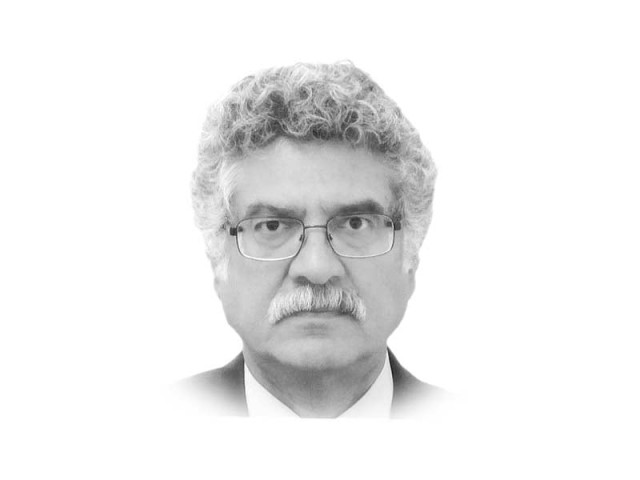David and Goliath
Washington has consistently justified its Cuba policy on the grounds that it supports democracy, human rights in Cuba

The writer is a former Ambassador of Pakistan. The views expressed here are his own
The magnitude of the Cuban achievement can only be understood when it is considered in the historical context. A Spanish colony “liberated” by the Americans only to be brought under the yoke of Washington’s control in pursuit of the Monroe Doctrine, Cuba has emerged after its revolution as a progressive and prosperous state despite the challenges imposed by the US. What was once a playground for rich Americans and a gambling den run by the Mafia that controlled the corrupt and venal dictatorships under the likes of Batista, Cuba has come as close as possible to becoming an egalitarian society. Considering the odds, this is no small achievement.
The Cuban revolution, led by Fidel Castro and the legendary Che Guevara, was a popular grassroots movement against exploitation, discrimination and corruption by a small privileged class that virtually turned their country into an American colony. The vestiges of this colonialism still remain in the shape of Guantanamo, a part of Cuba still under American military occupation. The objective of the revolution has been to bring political, economic and social change and, in the initial phase, sought US support for this change. It was only after America violently opposed the revolution and actually tried to undermine it that Cuba was forced to resist and turned to the Soviet Union for support.
Most outsiders only know about the Bay of Pigs, the aborted CIA-backed invasion of Cuba in 1961, or the Cuban Missile Crisis of 1962, the US-USSR nuclear stand-off after Soviet missiles were placed in Cuba. But lesser known facts are that the US employed multiple means, code-named “Operation Mongoose” sanctioned by Present Kennedy, to derail the Cuban revolution and bring about regime change. There were over six hundred CIA attempts to assassinate Castro, apart from engineering several plots and coups with the help of Cuban émigrés. Crops and livestock were poisoned by the CIA to destroy the Cuban economy. Che was hunted and killed with his body savagely mutilated by the Americans in Bolivia. Since the 1960s a continuous regime of sanctions and embargoes was enforced to cripple the Cuban economy. American influence in Latin American “Banana Republics” was also used to isolate Cuba. Ironically, this isolation only ended with the emergence of democracy in this region leading to Cuba’s eventual inclusion in the Organisation of American States and other regional organisations. Even fair-minded Americans recognised the futility of their policy and, belatedly, under President Obama, an effort was made to normalise relations with Cuba. Unfortunately, the current Trump administration has reversed this policy and the regime of sanctions has returned.
Washington has consistently justified its Cuba policy on the grounds that it supports democracy and human rights in Cuba. It has also viewed Cuban socialism as a threat to American interests. But there are double standards — America has always had and still has close relations with several dictatorships and socialist countries. Moreover, after the collapse of the Soviet Union, there is no Cold War-type threat to US security interests from Cuba. Simply stated, therefore, America’s Cuban policy is driven by primeval pique and crude cussedness, disguised in sanctimonious rhetoric.
That Cuba has suffered from such American policies is clear from even a short visit to that country. The scars are all too apparent. In the old town, elegant Spanish- era buildings are decaying, consumer goods are hard to come by, petrol supplies are irregular, foreign imports are virtually non-existent. Sanctions have made economic development difficult, taking their toll on the country.
But what is remarkable is the way the Cuban people have coped with these hardships. From the beginning Castro focused on human development owing to which there is now hundred percent literacy rate. Education, housing and medical care is virtually free and universally available. Cuban medicine is among the best in the world. There is no crime, extremism or terrorism. The standard of living is low but equal for all, with an overwhelming majority of the people enjoying a life style which was not possible a generation before. Cubans have also turned adversity into opportunity. The arts, music and tourism are flourishing — such as reconditioning old American cars into novel and remarkable tourist attractions.
On the international stage, Cuba punches much above its weight — being a leader of the developing would in the UN and the Non-Aligned Movement, not to mention its preeminent role in its region. Its isolation has been replaced with close relations with the international community. A measure of this success is the latest vote in the UN where the American resolution against Cuba received only two votes in favour — from the US and Israel.
Cuba’s relations with Pakistan, unfortunately, are under- achieved, largely due to our own failing. This needs to be corrected. There is tremendous potential in the areas of human development, education, trade, culture and tourism. We should never forget, for instance, the Cuban medical help after the 2005 earthquake and the 2,000 scholarships given to Pakistani students to study medicine. Such a relationship needs committed nurturing by Pakistan. There are also valuable lessons for us to learn for our own David and Goliath struggle.
Published in The Express Tribune, November 15th, 2018.
Like Opinion & Editorial on Facebook, follow @ETOpEd on Twitter to receive all updates on all our daily pieces.















COMMENTS
Comments are moderated and generally will be posted if they are on-topic and not abusive.
For more information, please see our Comments FAQ